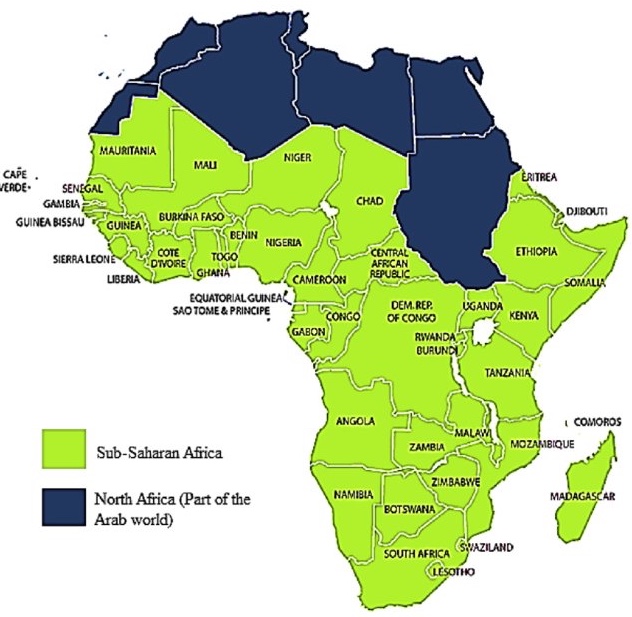
The future of the immigration debate
GEFIRA
Over the last decades the immigration debate has focused on the clash of civilizations – Christian Europe versus the Islamic migrants from the Middle-East. Algerians in France, Pakistanis in the United Kingdom, and Turks in Germany. The major groups that disturbed the demographics of Western Europe have all had in common that they are Islamic.
The anti-immigration political parties have embraced this, and have portrayed Islam, rather than immigration, as being the problem. Most immigration challenges focus around religion and the barrier it forms to successful integration. Right-wing parties have been able to use this as a defense against claims of racism. Islam, clearly, is not a race, it is an ideology. This becomes apparent when we look at one of the quotes from the Dutch Party for Freedom’s leader Geert Wilders:
“Islam is the Trojan Horse in Europe. If we do not stop Islamification now, Eurabia and Netherabia will just be a matter of time. One century ago, there were approximately 50 Muslims in the Netherlands. Today, there are about 1 million. Where will it end? We are heading for the end of European and Dutch civilisation as we know it.”
Wilders does not talk about falling birth rates or the percentage of the population that is foreign half as much as he talks about the problem of Islam.
We are nevertheless experiencing a shift. The Middle East and North Africa have a relatively small population: countries like Libya and Lebanon have under seven million inhabitants each. The most populous country in that group is Egypt, but that is not the country where immigrants are coming from. A country like Syria only has seventeen million inhabitants. We shouldn’t jump to the wrong conclusion that immigrants will continue to arrive in Europe from these areas. There is a bigger source. Yes, we’re talking about Africa. Sub-Saharan Africa.

In 1980, the population of the entire African continent was below 500 million. Today it stands at 1.3 billion. By 2050, this is expected to double to 2.6 billion. By 2100, it may be 4.5 billion. Nigeria has more than 200 million inhabitants. Both Ethiopia and the Democratic Republic of the Congo have more than 100 million inhabitants each. Those three countries combined have a larger population than the post-Brexit European Union. And their populations are expanding rapidly. Whereas Europeans have on average 1.5 children per woman, in Mali that number is 7. Just to clarify what this means: the average number of children per woman in Mali is seven. Now that is exponential growth. So condition one for the next migration flow is there: Africa’s population is booming.
Why would they emigrate? Well, apart from war and poverty, two more reasons are brought to our attention. One is climate change. So-called ‘climate refugees’ are the future. Africa has never had a kind climate, so it is always easy to justify someone leaving the continent. Droughts and water shortages will become a reason to migrate. These kinds of disasters, common to Africa, will become reasons to claim refugee status. The second cause of migration is the COVID 19 pandemic. The Red Cross is already expressing concern about famine, failed harvests, and drought in Africa. They say nearly 700 million people are threatened. That is half of all inhabitants of the continent. Not only have harvests failed, but prices have gone up and many have lost their jobs. The hit to the global economy hits hardest in the poorest regions. There is either no food, or those living and working in Africa do not have the money to afford it. The pretense that COVID 19 blocked the migration flow from Africa to Europe is nonsense. It hasn’t been as high as it was before, trending downward from the peak in 2015, but the stream hasn’t dried up.
Europe’s anti-immigrant political parties are facing a challenge. So far their rhetoric has been focused on Islam. Even when more and more Africans were coming, the debate focused on Syrian refugees. Their critiques focus on safety, jihadists, and the influence of sharia. They have skillfully avoided the topic of race. What will happen to these parties once the biggest group of immigrants becomes Christian Sub-Saharan Africans? How will they cope with the necessary change? As the United States shows, the race topic is far more difficult than the religion topic. We must expect that Europe’s political parties will prefer to keep the debate focused on religion and culture, but it has gotten a tad more difficult. Either the debate will get far more heated, as it is in the United States, or Europe’s politicians will take on a softer stance towards immigration, unable to argue why Europe should not receive more African migrants.
The debate is changing, and the question becomes not if Eurabia and Islam should be repelled, but if Eurafrica is something that Europe’s citizens are willing to accept.
************
Source
[1] 690 miljoen mensen hebben honger, Rode Kruis opent gironummer, NOS.
[2] Population Boom in Africa – The Source of Europe’s Coming Migrants, Clovis Instiute.
[3] Climate change and disaster displacement, UNHCR.
****

••••
The Liberty Beacon Project is now expanding at a near exponential rate, and for this we are grateful and excited! But we must also be practical. For 7 years we have not asked for any donations, and have built this project with our own funds as we grew. We are now experiencing ever increasing growing pains due to the large number of websites and projects we represent. So we have just installed donation buttons on our websites and ask that you consider this when you visit them. Nothing is too small. We thank you for all your support and your considerations … (TLB)
••••
Comment Policy: As a privately owned web site, we reserve the right to remove comments that contain spam, advertising, vulgarity, threats of violence, racism, or personal/abusive attacks on other users. This also applies to trolling, the use of more than one alias, or just intentional mischief. Enforcement of this policy is at the discretion of this websites administrators. Repeat offenders may be blocked or permanently banned without prior warning.
••••
Disclaimer: TLB websites contain copyrighted material the use of which has not always been specifically authorized by the copyright owner. We are making such material available to our readers under the provisions of “fair use” in an effort to advance a better understanding of political, health, economic and social issues. The material on this site is distributed without profit to those who have expressed a prior interest in receiving it for research and educational purposes. If you wish to use copyrighted material for purposes other than “fair use” you must request permission from the copyright owner.
••••
Disclaimer: The information and opinions shared are for informational purposes only including, but not limited to, text, graphics, images and other material are not intended as medical advice or instruction. Nothing mentioned is intended to be a substitute for professional medical advice, diagnosis or treatment.





